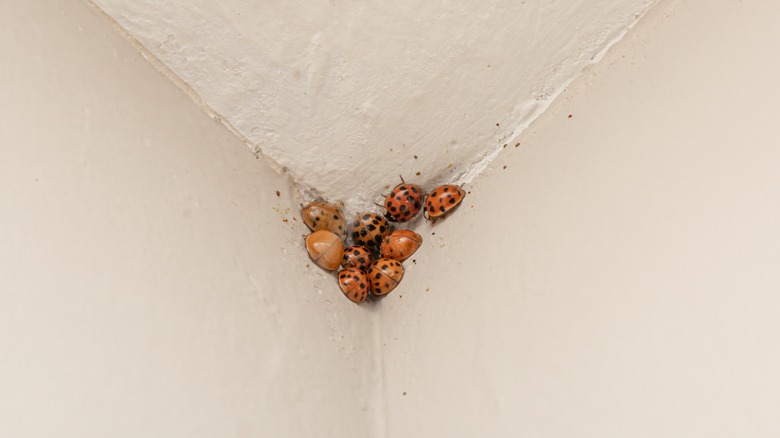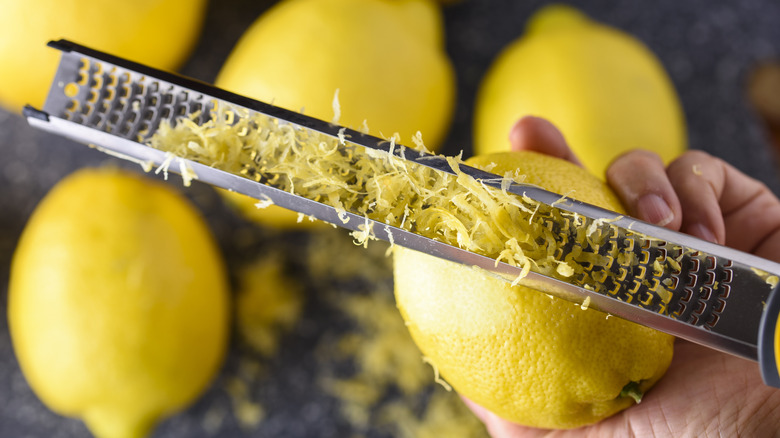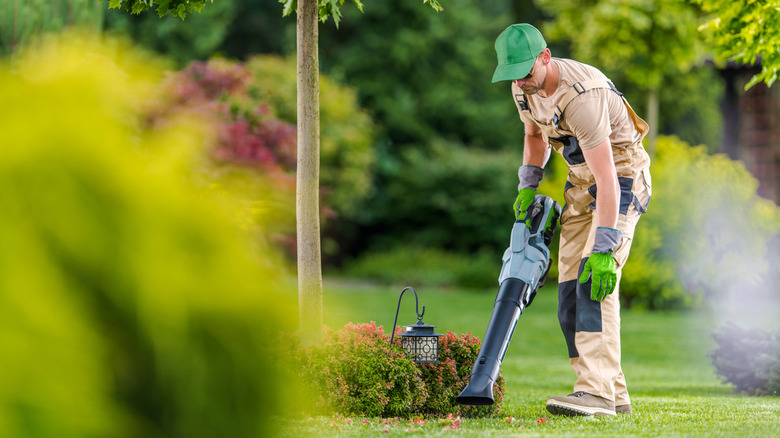The Citrus Scent You Need To Kick Asian Lady Beetles To The Curb
Asian lady beetles, scientifically known as Harmonia axyridis, were initially introduced to the United States in 1978 as a biological control agent in the agricultural sector, specifically targeting aphids and scale insects. While they do play a role in pest management, these beetles have become a formidable nuisance for homeowners. Unlike their domestic counterparts, Asian lady beetles are more aggressive and tend to invade homes in search of warmth during the colder months. If these pests have begun camping out in your home, then it's a good thing they hate the scent of citrus oil, as you can use it to repel them.
What sets Asian lady beetles apart from their friendly cousin, the ladybug, is their ability to release a yellowish fluid when threatened, staining surfaces and emitting a distinct odor. This defensive mechanism can be a source of frustration for those dealing with an infestation. Moreover, the beetles can bite, though not venomously, causing irritation for some individuals. According to the PennState Extension website, some people with sensitivities to these bugs have reported suffering from sinus and mild skin irritations after coming into contact with them.
To repel these intruders, you can use the strong refreshing scent of citrus oil. Learn how to leverage this natural solution to safeguard your home from these persistent pests.
Using citrus oil to repel Asian lady beetles
Citrus oil is known for its insect-repelling properties, offering a natural and effective solution to combat the intrusion of Asian lady beetles. A 2021 article published in IOP Conference Series: Earth and Environmental Science involving the use of Mandarin orange (Citrus reticulata) essential oil showed its viability for repelling both mosquitoes and ants. Apparently, it's the limonene content — a chemical found in citrus peels — that works as a natural bug repellent and insecticide. Additionally, essential oil extracted from pomelo (Citrus maxima) peels has been found to have insect-repelling properties based on a 2022 study published in the journal Insects. It should be noted that citronella oil, another proven potent natural insect repellent, also contains limonene.
To create your own citrusy deterrent, all you need to do is to use actual fruit peels from any citrus fruit of your choice — whether it be lemons, oranges, etc. Grate the fruit rind and spread it in areas Asian beetles use to enter your house. You can also spread them in your garden or porch to discourage them from making a home in your property. If Asian lady beetles have settled in your house, use citrus or citronella oil to mask the scent they've left in your home. This confuses them, making it harder for them to find their favorite spot in your home, and thus leave. To prevent them from returning (or even coming in at all), apply the oil to entry points such as windows, doors, and cracks in walls.
Make your property unattractive to Asian lady beetles
Preventing an Asian lady beetle infestation involves making your living space and garden less appealing to these pests. Start by sealing cracks and gaps in windows, doors, and walls to limit entry points. Trim vegetation near your home, as these beetles are attracted to overgrown foliage. Install screens on windows and doors to create a barrier. If any Asian lady beetles find their way into your home, promptly vacuum them up to prevent the release of their potent scent, then bag, seal, and discard them. In the garden, regularly remove debris and fallen leaves. This eliminates potential hiding spots for the beetles and their prey. Avoid planting crops that attract aphids as well, since these insects are a primary food source for Asian lady beetles.
By implementing these measures alongside the use of citrus oil or limonene, you can create an environment that is less inviting to these persistent pests, minimizing the need for interventions. Of course, if you find your home already infested with these bugs, it's best to get professional help from a pest control service.


